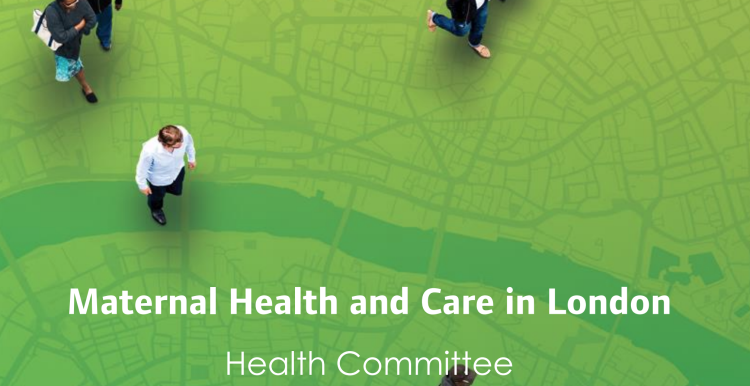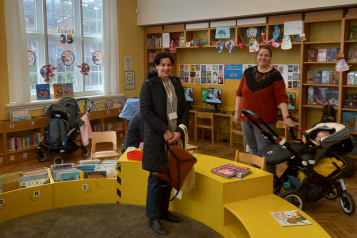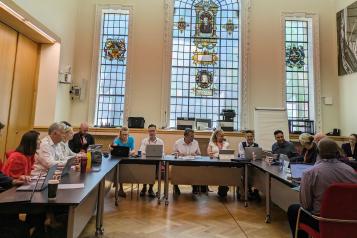Healthwatch Greenwich features in new London Maternal Health report

The aim of the investigation was to understand the impact of the pandemic for those using services as well as those working in the maternal health sector, and hear their recommendations for ways to improve maternity services in London.
As part of the investigation, the Committee heard from experts in the sector at a meeting in City Hall and put out a Call for Evidence in order to gather a diverse range of views and experiences.
Maternal Health Report Executive Summary
Maternal health refers to the health of women during pregnancy, childbirth and the postnatal period. Maternal healthcare refers to the care delivered to pregnant women and birthing people, and new parents; this includes antenatal care, care given during labour, and postnatal care. The COVID-19 pandemic had a significant impact on maternal healthcare experiences, exacerbating existing health inequalities, and placing significant strain on under-staffed services.
The Health Committee held a meeting at City Hall to discuss maternal health and care in London on 30 June 2022 with representatives from the GLA, the Royal College of Midwives (RCM), the wider London healthcare system, and community and advocacy organisations.
The Committee received responses to its Call for Evidence from Healthwatch Greenwich; Healthwatch Wandsworth; and Sands, an organisation supporting bereaved parents. The Committee also carried out a survey, in which we asked people who have been pregnant between 2020 and 2022, their partners, and close friends or family members about their experiences of maternity services in London. A summary of the findings of this survey are contained at the end of this report.
The Committee made a number of key findings as part of its investigation, which are summarised below:
Key Findings
- During the pandemic, there were disparities in the levels of care provided between NHS Trusts in London. Different Trusts took contrasting approaches to enforcing COVID-19 restrictions, with users of maternal health services feeling that restrictions were not always proportionate.
- London’s maternity services face significant challenges around staffing levels, with. Dr Suzanne Tyler telling the Committee that ‘retention is definitely the key’. The Committee heard that investment is required to break the cycle of understaffed service provision. The House of Commons Health and Social Care Committee’s 2021 report, ‘The safety of maternity services in England’, recommended that the budget for maternity services be increased by between £200 million and £350 million per annum. In March 2022, NHS England announced an additional £127 million of funding for maternity services across England, which included more than £50 million to increase staff numbers.This follows £95 million which was announced in 2021, with the aim of adding 1,200 midwives and 100 obstetricians to the workforce.
- The pandemic had a negative impact on levels of postnatal support, and on the mental health of pregnant women and birthing people, and their partners. In the Health Committee Maternal Health Survey, respondents reported receiving fewer follow-up visits from health services. Mental health is a key factor in maternal health outcomes, and so further community-level support is needed to address post-pandemic mental health challenges.
- There are a range of inequalities in maternal health outcomes. Not all health professionals have a sufficient understanding of disparities in maternal health outcomes, particularly for women and birthing people from ethnic minority groups, which can have an impact on the quality of care that they provide. Further education around these disparities, as well as the specific health conditions that people from ethnic minority backgrounds experience, would lead to improved care provision.
- The importance of interpretation services in allowing people to make informed decisions about their pregnancy became particularly apparent during the pandemic. Partners, who are often relied on as informal interpreters by women and birthing people whose first language is not English, were not allowed to be present for many appointments and procedures.
Download the full report here
If you need this report in another format, contact Steve: steve@healthwatchgreenwich.co.uk


